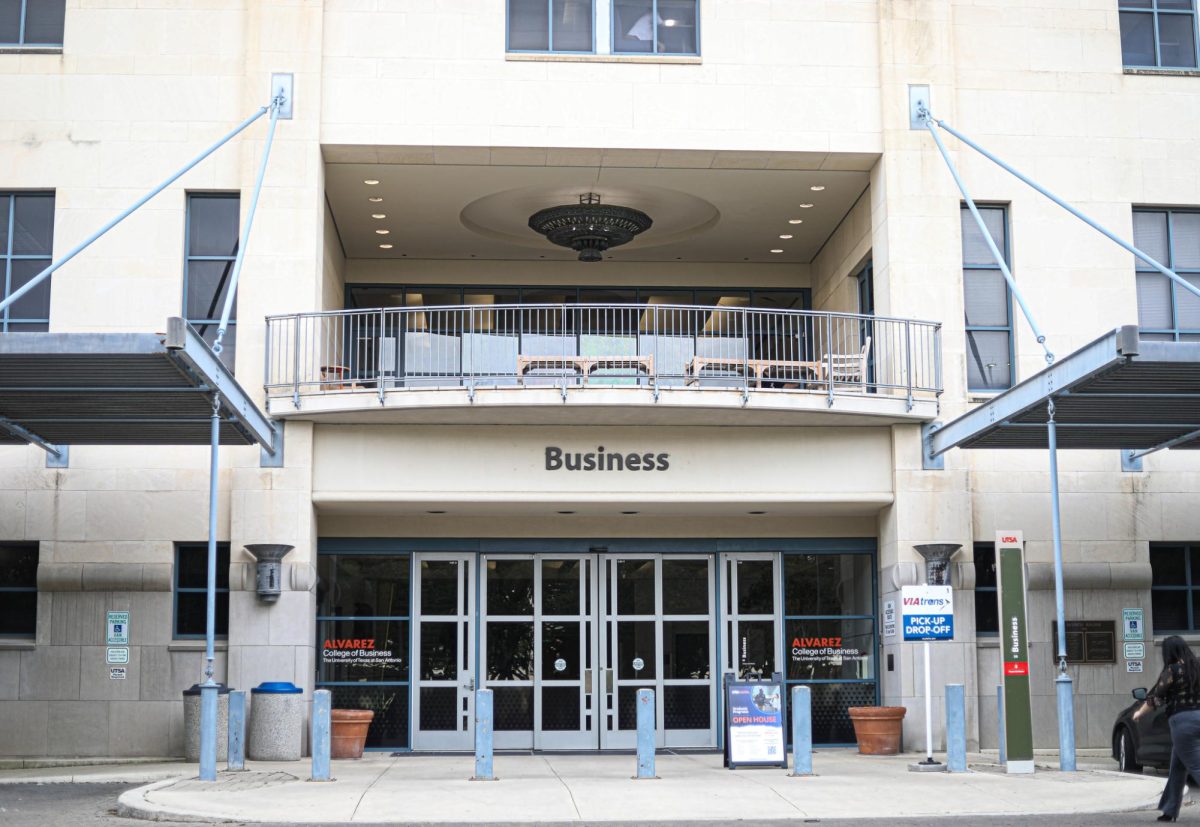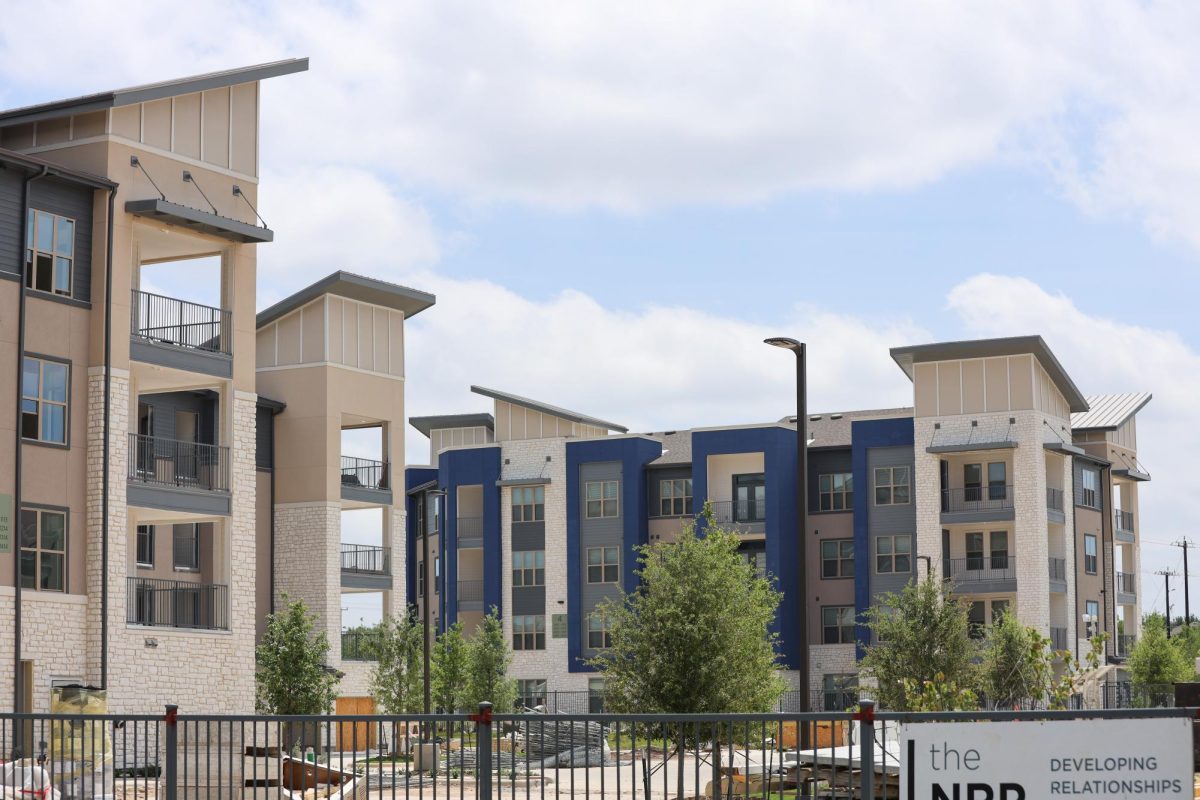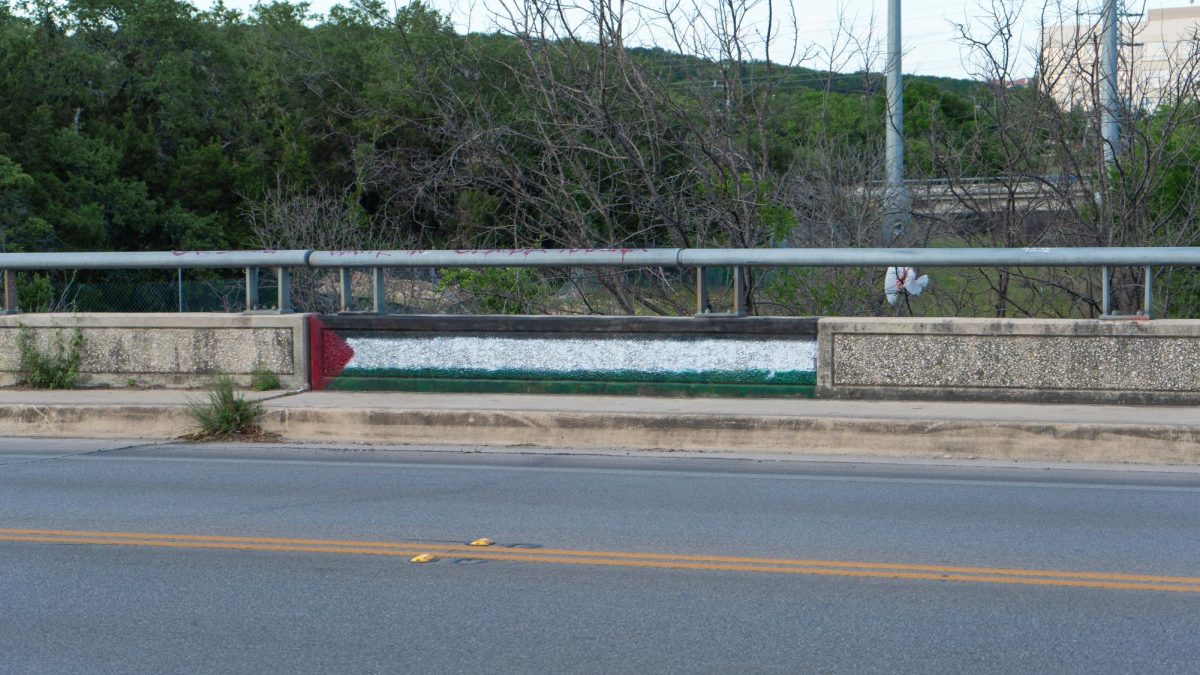
Watching Friday’s mayoral debate from the audience in the Main Building auditorium, Rhett Smith held a printed sign: "Rhett Smith for Mayor."
Although he filed for mayoral candidacy after plans had been made for the Student Government Association sponsored debate Feb. 18, he still felt it was important to reach out to UTSA students. "Texas gets a bad rap for being ultra-conservative and anti-intellectual," Smith said. "I will push the interaction between UTSA and all colleges with the community."
Smith challenged incumbent Congressman Lamar Smith (R-San Antonio) for district 21 in the November election. District 21 includes Blanco county and parts of Hays, Comal and Bexar counties; Lamar Smith has represented district 21 since 1987.
Smith’s congressional campaign platform challenged the Republican administration’s Medicare bill, economic record and legislative record, including the passage of the USA PATRIOT Act.
"Many people ask why I shifted gears," Smith said, referring to his decision to run for local office. "To me politics is about advocacy–being an advocate for constituents." Smith said it was an easy decision to run for mayor because his children and granddaughter live in San Antonio.
He said the problems San Antonio faces and its demographics make the city a model for Texas; what is good for San Antonio is good for Texas.
"San Antonio is a microcosm of what Texas is going through," he said. "If we enlarge our concept of community, San Antonio has the capability, intellect and talent to lead Texas." He believes the city should have an influential voice in state and national government and, as mayor, he said he would be a strong spokesperson for the city. "Politics is a bully pulpit, [which] I intend to use for our community and our state," he said.
During Friday’s debate, Judge Phil Hardberger spoke of a ten-year plan to transform the city, while Councilman Julian Castro, in his closing remarks, referred to an even farther-reaching plan. "These candidates have good ideas," Smith said. "I don’t look 50 years down the road. I want to change things right now."
He differentiates himself from the other three candidates by focusing on what he termed "wider statewide issues," especially Child Protective Services and public schools.
If elected mayor, he will address inequities in public school funding. "All superintendents [in the city] need to come together to be sure each school is getting a fair deal and to speak with one voice to the Texas state legislature," he said. If elected, Smith said he will be a strong spokesman for Texas schools.
Smith disagrees with the current "Robin Hood" school finance program, which re-distributes property tax revenues from affluent districts to impoverished districts. "I want to address the inequity…without penalizing [wealthy schools]," he said.
He supports connecting San Antonio to Austin with a high-speed transportation system. "By tying San Antonio’s development with Austin, by saying San Antonio is Texas’s first city, by having a mayor that wants to do that, this is the solution in some ways," Smith said, referring to San Antonio’s need to create jobs and grow its economy.
Smith said he is also prepared to address concerns about San Antonio’s drinking water source: the Edwards Aquifer. "The city could set aside enough funds to purchase sensitive areas over the Edwards Aquifer instead of worrying about a developer coming in and developing that land," he said.
Smith lives in San Antonio. He earned a Bachelor of Arts in accounting at the University of Texas in 1973.











